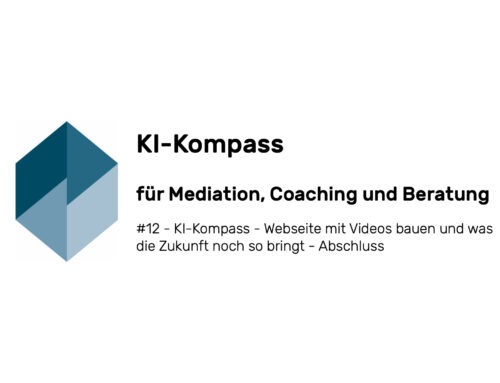INKOVEMA Podcast „Well through time“
#14 – Paraphrasing neuropsychologically analysed. How it has an emotionally positive and stimulating effect.
In conversation with Maria Seehausen
Well through time. The podcast about mediation, conflict coaching and organisational consulting.
Maria Seehausen, graduated with several neuropsychological studies on paraphrasing at the FU Berlin – and was able to prove that the technique of paraphrasing has a positive emotional effect on conflict participants in mediation on the one hand and a stimulating and activating effect on the other. She was thus able to confirm and explain important hypotheses and empirical values of mediators, which can now be taken into account in training and further education. In the podcast, she also talks about the possible applications of her findings in leadership development, especially in tense and uncertain times of the Covid19 pandemic.
Contents:
- Definition of and modes of action of paraphrasing
- Calming effects, relief and relaxation (establish rapport when describing the problem!)
- but also tension and stimulation effects, activation to achieve performance (search for solutions!)
- Research design and methods of neuropsychological examinations:
- Pilot study: Interviews with conflict parties as test subjects
- Functional magnetic resonance imaging to visualise neuronal changes (during an interview/mediation)
- Electrodermal activity measurements (EDA), such as pulse and heart rate measurement, respiration, voice analysis, etc.
- more Findings:
- Paraphrases should subjective formulationThe term is used to describe a situation from the point of view of the communication partner and not to bring about an objective confirmation through an objectifying formulation.
- Transferability to other professional groups possible, who also (have to) act neutrally but communicatively – Judges, managers!
Paraphrasing is just as important and has similar effects as expressing compassion.
This is interesting for managers who fear that expressing compassion undermines their ability to act.
literature discussed:
- Seehausen, M.: The emotional effect of paraphrasing. Results of three neuropsychological studies, ZKM 2019, 164-169.
-
Effects of empathic paraphrasing – extrinsic emotion regulation in social conflict, in: Frontiers in Psychology, 2012, 3:482 (LINK).




Leave A Comment